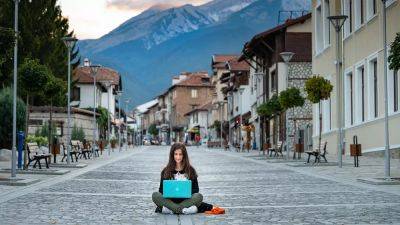Europe heatwave 2023: Is it safe to travel and how long will it last?
Countries across the Mediterranean are in the grip of a record-breaking heatwave as they are hit by the second ‘heat storm’ in a week.
Much of southern Europe including holiday spots like Spain, Italy, Croatia and Greece has seen extremely high temperatures that are expected to last for at least another week.
Some parts of southern Italy and Greece are expecting highs over 40C as the weather continues to get hotter.
Forecasters have warned that the European temperature record of 48.8C - recorded close to Siracusa in Sicily in 2021 - could be broken.
So what does this mean for holidaymakers heading to southern Europe this summer?
One thing’s for sure- if you travel to a country affected by the Charon heatwave, previously called Cerberus, it will be very hot.
In Italy, 20 cities are under red alert heat advisories. This will rise to 23 from tomorrow (Wednesday), meaning all but 4 of Italy's biggest cities will be under red alerts.
A city is on red alert when the heat is so intense it poses a threat to the whole population, not just vulnerable groups such as the sick, the elderly and small children.
Italian authorities are advising people to avoid direct sunlight between 11 am and 6pm.
The UK's Foreign Office has travel warnings in place for Italy, Spain and Greece. They advise travellers to visit the NHS website or foreign health ministry websites for advice on how to stay safe.
If you do decide to travel, tourists are asked to make sure they are applying sunscreen, avoiding being outside during the hottest parts of the day and staying hydrated. People are also being urged not to drink alcohol as it can increase the chance of dehydration, heat exhaustion or heat stroke.
Health issues from the heat have put a strain on the local





